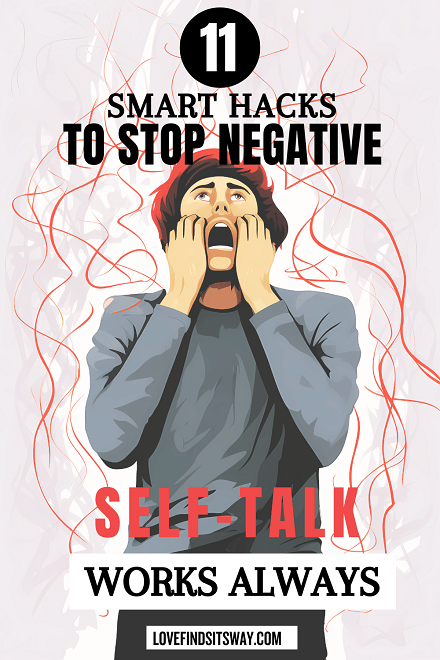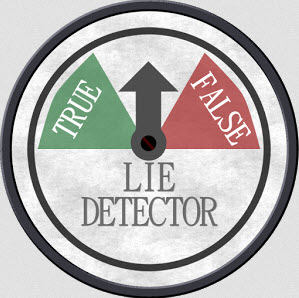
Struggling with negative self-talk? Discover how it affects your wellbeing and learn practical strategies to turn that inner critic into a supportive friend.
So how to stop negative self-talk? Research indicates that the average person—that means you!—talks to himself or herself about 50,000 times a day.
And most of that self-talk is about yourself, and according to the psychological researchers, it is 80% negative thoughts and things such as I shouldn’t have said that:
- They don’t like me….
- I’m never going to be able to pull this of ….
- I don’t like the way my hair looks today….
- That other team is going to kill us….
- I can’t dance….
- I’ll never be a good skater….
- I’m not a speaker….
- I’ll never lose this weight….
- I can’t ever seem to get organized….
- I’m always late.
We know from the research that these negative thoughts have a powerful effect on us. They affect our attitude, our physiology, and our motivation to act. Our negative thoughts actually control our behavior.
They make us stutter, spill things, forget our lines, break out in a sweat, breathe shallowly, feel scared— and taken to the extreme, they can even paralyze or kill us.
In this article, we are going to learn a new perspective, so that we can switch negative self-talk to self-talk that’s loving and kind, improve our confidence, self-esteem, and use our energy to do what makes us happy, not hold ourselves back.
#1. Story of Nick Sitzman How His Negative Self-Talk Killed Him.
Nick Sitzman was a strong, healthy, and ambitious young railroad yardman. He had a reputation as a diligent hard worker and had a loving wife and two children and many friends.
One midsummer day, the train crews were informed that they could quit an hour early in honor of the foreman’s birthday.
While performing one last check on some of the railroad cars, Nick was accidentally locked in a refrigerator boxcar. When he realized that the rest of the workmen had left the site, Nick began to panic.
He banged and shouted until his fists were bloody and his voice was hoarse, but no one heard him.
With his knowledge of “the numbers and the facts,” he predicted the temperature to be zero degrees.
Nick’s thought was If I can’t get out, I’ll freèze to death in here.
Wanting to let his wife and family know exactly what had happened to him, Nick found a knife and began to etch words on the wooden floor.
He wrote, “It’s so cold, my body is getting numb. If I could just go to sleep.
These may be my last words.” The next morning, the crew slid open the heavy doors of the boxcar and found Nick dead.
An autopsy revealed that every physical sign of his body indicated he had frozen to death.
And yet the refrigeration unit of the car was inoperative, and the temperature inside indicated 55 degrees Fahrenheit.
Nick had killed himself by the power of his own negative energy and negative thoughts.
If you’re not careful, you can kill yourself with your limiting beliefs and negative thoughts—not all at once like Nick Sitzman, but little by little, day after day, until you have slowly deadened your natural ability to achieve your dreams.

#2. Your Negative Energy And Negative Thoughts Affect Your Body.
We also know from polygraph (lie-detector) tests that your body reacts to your thoughts—changing your temperature, heart rate, blood pressure, breathing rate, muscle tension, and how much your hands sweat.
When you are hooked up to a lie detector and are asked a question such as “Did you take the money?” your hands will get colder, your heart will beat faster, your blood pressure will go up, your breathing will get faster, your muscles will get tighter, and your hands will sweat if you did take the money and you lie about it.
These kinds of physiological changes occur not only when you are lying but also in reaction to every thought you think. Every cell in your body is affected by every thought you have.
Negative thoughts affect your body negatively—weakening you, making you sweat, and making you uptight.
Positive thoughts affect your body in a positive way, making you more relaxed, centered, and alert.
Positive thoughts will cause the secretion of endorphins in the brain and will reduce pain and increase pleasure.
#3. Talk to Yourself Like a Winner.

JAMES ALLEN
Author of As a Man Thinketh
You are today where your thoughts have brought you; you will be tomorrow where your thoughts take you.
So what if you could learn how to stop negative self-talk and always talk to yourself like a winner instead of a loser?
What if you could transform your negative self-talk into positive self-talk?
What if you could silence your thoughts of lack and limitation and replace them with thoughts of unlimited possibility?
What if you could stop negative thoughts and replace any victim language in your thoughts with the language of empowerment?
And what if you could transform your inner critic, who judges your every move, into a supportive inner coach who would encourage you and give you confidence as you faced new situations and risks?
Well…all of that is possible with a little awareness, focus, and intention.
Don't Miss: 11 Easy Steps on How To Embrace Change to Improve Your Life
Don't Miss: 7 Smart Hacks On How to Be Positive in Life (3rd will amaze you)
#4. Stomp Those Ants To Stop Negative Self-Talk.
Psychiatrist Daniel G. Amen has named the limiting thoughts we hear in our head ANTs—Automatic Negative Thoughts.
And just like real ants at a picnic, your ANTs can ruin your experience of life.
Dr. Amen recommends that you learn to stomp the ANTs.
First you have to become aware of them; next you have to shake them off and stomp them by challenging them.
Finally, you have to replace them with more positive and affirming thoughts.

DANIEL G. AMEN, M.D
Clinical neuroscientist, psychiatrist, and specialist in attention-deficit disorders
Don’t believe everything you hear—even in your own mind.
The key to dealing with any kind of negative thinking is to realize that you are ultimately in charge of whether to listen to or agree with any thought.
Just because you think it—or hear it—doesn’t mean it’s true. You want to constantly ask yourself, Is this thought helping me or hurting me?
Is it getting me closer to where I want to go, or taking me further away?
Is it motivating me to action, or is it blocking me with fear and self-doubt?
You have to learn to challenge and talk back to the thoughts that are not serving you in creating greater success and happiness. To talk back to your ANTs, you first have to be aware of them.
#5. Write Down Your Negative Thoughts To Get Rid of Them.
Doug Bench, the author of the “Mastery of Advanced Achievement Home Study Course,” recommends writing down every negative thought you think or say out loud and every negative thought you hear anyone else say—for 3 whole days!
(Make sure that 2 of the days are workdays and that 1 is a weekend day.)
This is the best way to heighten your awareness of your ANTs.
Here are a couple of others. Ask your spouse or partner, children, roommates, and fellow employees to catch you and impose a dollar fine every time they hear you uttering a negative thought.
Create a rule in your family of putting $2 in a bowl every time someone said anything that was blaming, justifying, or self-negating. It will be amazing to see how fast the bowl fills up.
However, as time passes, there will be fewer and fewer automatic negative comments as we all become more aware and stomped the ANTs before they even came out of our mouths.
==> Try this tip if you want to learn how to stop negative self-talk in your family and in your life.

#6. Different Types of Ants, Different Types of Negative Energy And Negative Thoughts.
It is helpful to understand some of the different kinds of ANTs that might attack you.
When you recognize these kinds of ANTs, realize they are irrational thoughts that need to be challenged and replaced.
Here are some of the most common kinds of ANTs and how to stomp them.
Always-or-Never Thinking In reality, very few things are always or never.
If you think something is always going to happen or you will never get what you want, you are doomed from the outset.
When you use all-or-nothing words such as always, never, everyone, no one, every time, and everything, you are usually wrong.
Here are some examples of always-or-never thinking:
- I’ll never get a raise.
- Everyone takes advantage of me.
- My employees never listen to me.
- I never get any time for myself.
- They’re always making fun of me.
- I never get a break.
- No one ever cuts me any slack.
- Every time I take a risk, I get slammed.
- Nobody cares if I live or die.
When you find yourself thinking always-or-never thoughts, replace them with what is really true.
Replace You always take advantage of me with I get angry when you take advantage of me, but I know that you have treated me fairly in the past and that you will again.
Don't Miss: 8 Smart Tips To Surround Yourself With Positive People
Don't Miss: 9 Steps To Overcome Fear of Failure And Master Your Life
#7. Some People Have a Habit of Focusing on the Negative Thoughts.
Some people focus only on the bad and never on the good in a situation. Learn to look for the positive. Not only will it help you feel better, but it will also be a critical component of your creating the success you want.
Recently a friend of mine told me he had seen an interview with a multimillionaire on television who described the turning point in his career as the morning he asked all of his staff to talk about one good thing that had occurred during the past week.
At first all that came up were more complaints, problems, and difficulties.
Finally, one employee commented on the fact that the UPS driver who delivered packages to the office had told him that he had applied to college and was going to go back to school to get his degree, and on how inspired he was by the man’s commitment to further his education to pursue his ultimate dream in life.
Slowly, one employee and then another came up with something that was positive to share. Soon, this became a part of every meeting.
Eventually, they had to end the meetings before every positive thing could be recounted.
The whole attitudinal focus of the company changed from focusing on the negative thoughts to focusing on the good, and the business just took off and grew exponentially from that moment on.
Learn to play the Appreciation Game. Look for things to appreciate in every situation. When you actively seek the positive, you become more appreciative and optimistic, which is a requirement for creating the life of your dreams.
Look for the good. My wife was recently in an automobile accident. She drove through an intersection where the traffic light was inoperative because of a power outage, and hit another car turning across her lane.
She could have succumbed to a multitude of ANTs—What’s wrong with me?
I should have been paying better attention. I shouldn’t have been out driving when the power was out.
Instead, she focused on the positive—I’m so lucky to be alive and relatively unhurt.
The other driver is alive and well. Thank God I was in such a safe car. I am so glad the police came as fast as they did. It’s amazing how many people were there to help. This was a real wake-up call.
A powerful exercise for building your appreciation muscle is to take 7 minutes every morning to write down all the things you appreciate in your life and feel gratitude.
I recommend this as a daily ritual for the rest of your life; however, if you think that is excessive, at least do it for 30 to 40 days.
It will create a huge change in how you see the world.
#8. Mind-Reading Myths.
You are mind-reading when you believe you know what another person is thinking even though he or she hasn’t told you.
You know you’re mind-reading when you’re thinking negative thoughts such as He’s mad at me…. She doesn’t like me…. He’s going to say no…. He’s going to fire me.
Replace mind reading with the truth: I don’t know what he is thinking unless I ask him. Maybe he’s just having a bad day.
Remember, unless you’re a psychic living in California, you can’t read anyone else’s mind. You don’t ever know what they’re really thinking unless they tell you or you ask them.
Check out your assumptions by asking, “I’m imagining you might be mad at me. Are you?” I use the phrase “When in doubt, check it out!” to keep myself on track with this one.
#9. Guilt-Tripping Negative Self-Talk.
Guilt happens when you think words such as should, must, ought to, or have to.
Here are some examples: I ought to spend more time studying for my bar exam…. I should spend more time at home with my kids…. I have to exercise more.
As soon as we feel like we should do something, we create an internal resistance to doing it.
You will be more effective if you replace guilt-tripping negative self-talk with phrases such as I want to…It supports my goals to…It would be smart to…It’s in my best interest to… Guilt is never productive.
It will stand in the way of achieving your goals. So get rid of this emotional barrier to success.
#10. Stop Labelling.
Labeling is attaching a negative label to yourself or someone else. It is a form of shorthand that stops you from clearly making the distinctions that would be helpful to being more effective.
Some examples of negative labels are jerk, idiot, arrogant, and irresponsible.
When you use a label like this, you are lumping yourself or another into a category of all the jerks or idiots you have ever known, and that makes it more difficult to deal with that person or situation as the unique person or experience they are.
Challenge the thought I am stupid with What I just did was less than brilliant, but I am still a smart person.
#11. Personalizing.
You personalize when you invest a neutral event with personal meaning. Kevin hasn’t called me back yet. He must be mad at me.
Or We lost the Vanderbilt account. It must be my fault. I should have spent more time on the proposal.
The truth is that there are many other possible explanations for other people’s actions besides the negative reasons your ANTs come up with.
For example, Kevin may not have called you back because he is sick, out of town, or overwhelmed with his own priorities. You never really know why other people do what they do.
That's all for now. I hope you understood the main theme of this article on how to stop negative self-talk.
Follow the tips in this article to change your negative energy and thoughts to positive. These are very helpful tips that transform your life when used wisely.

